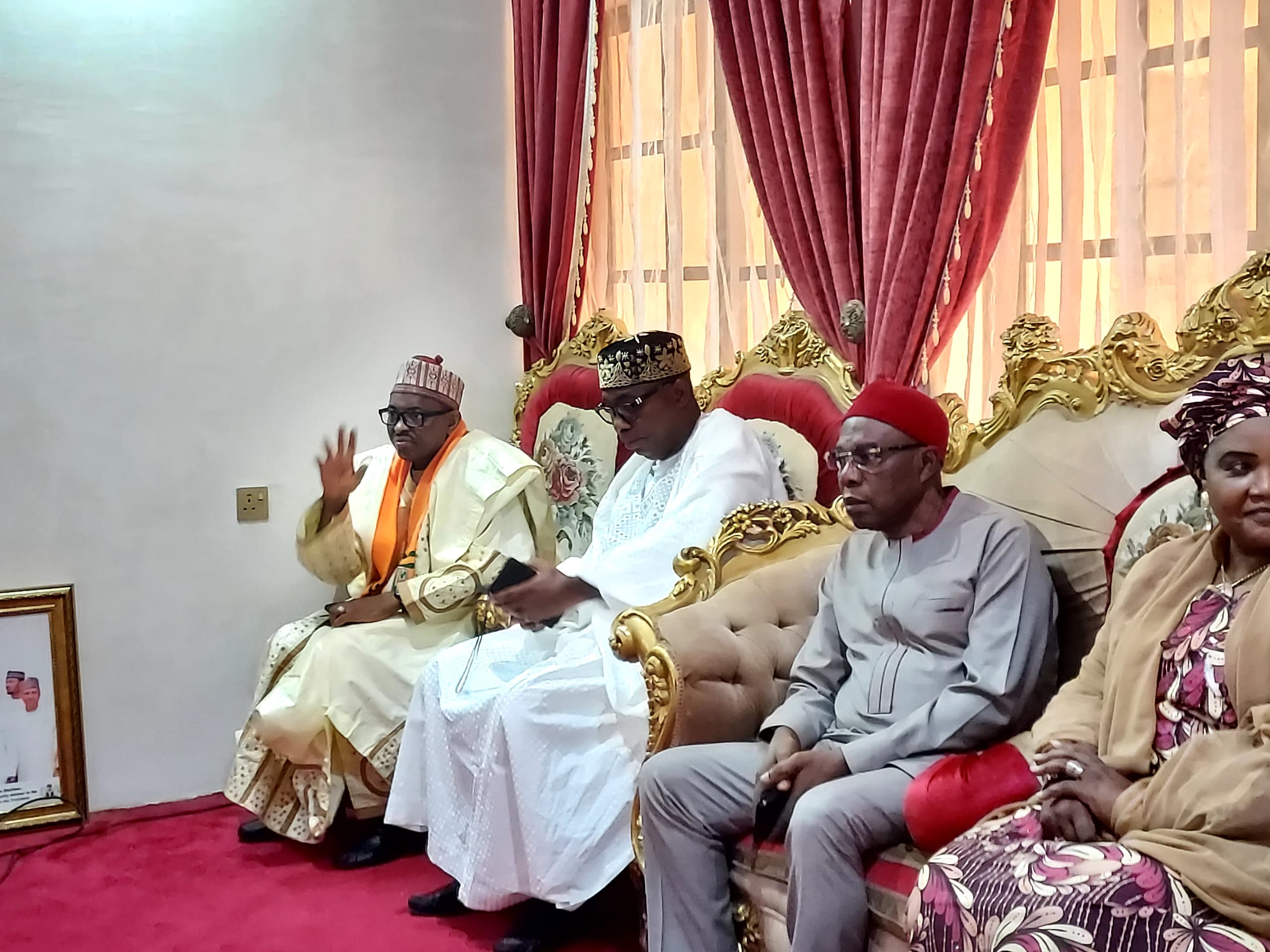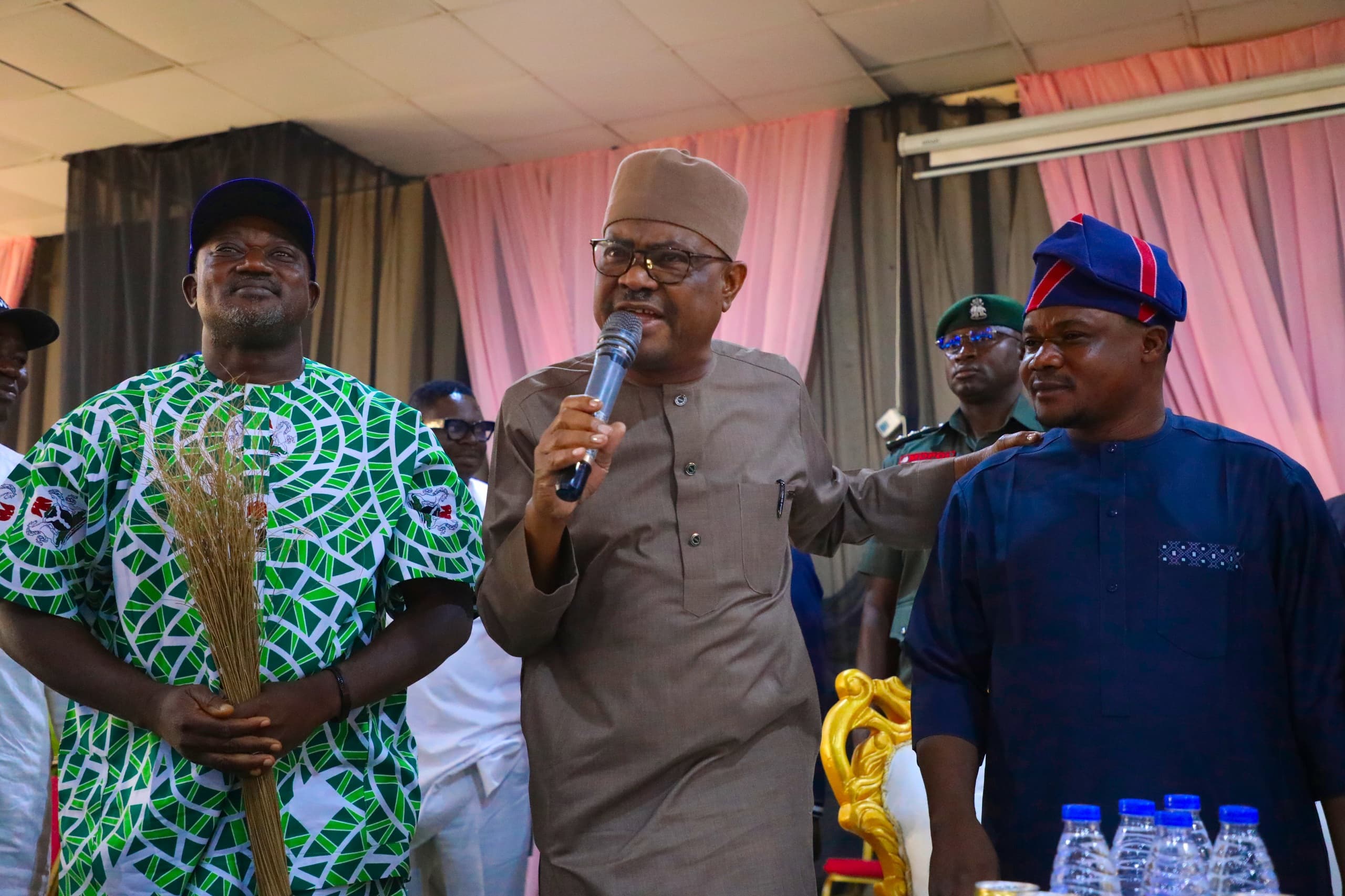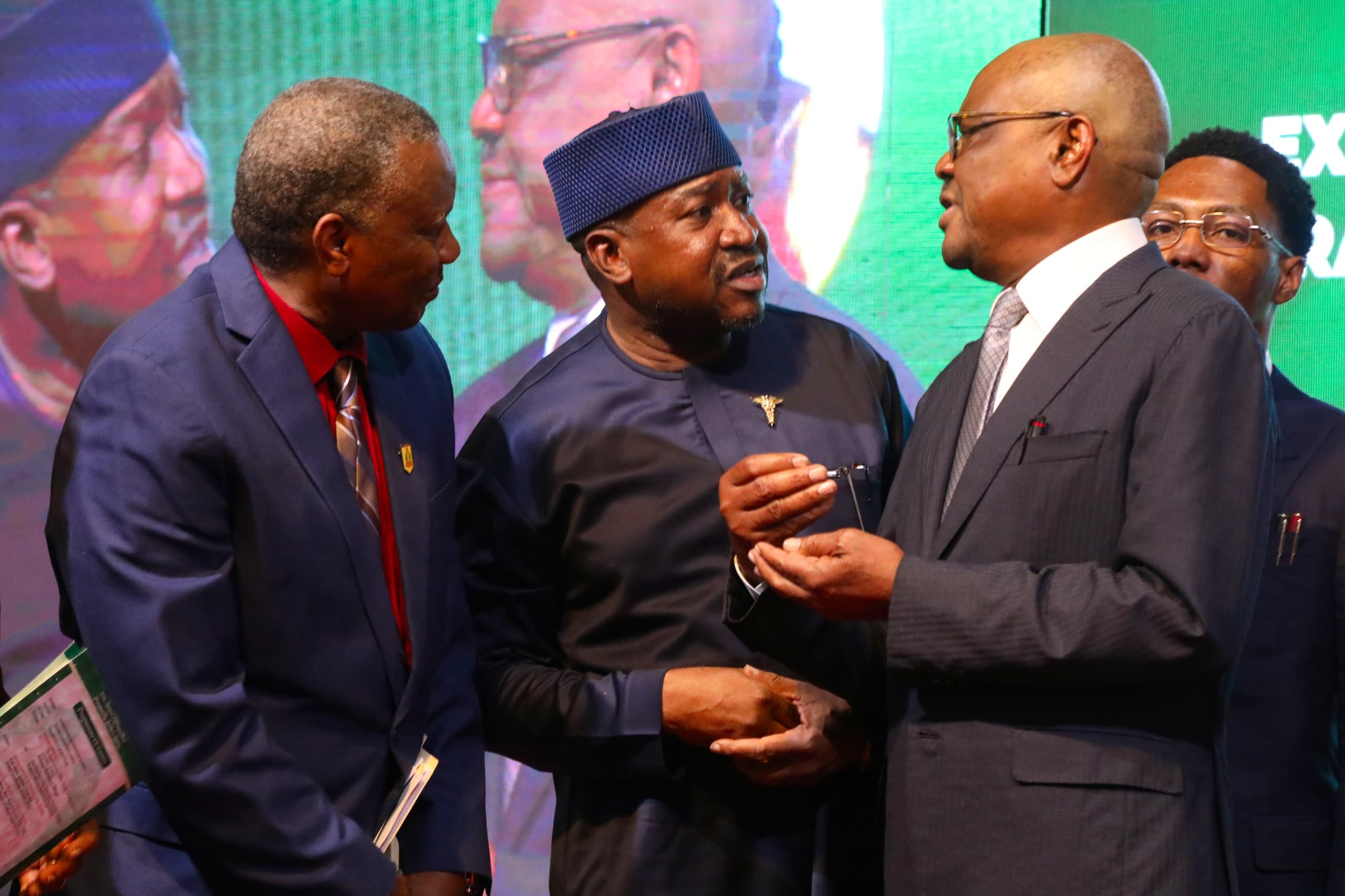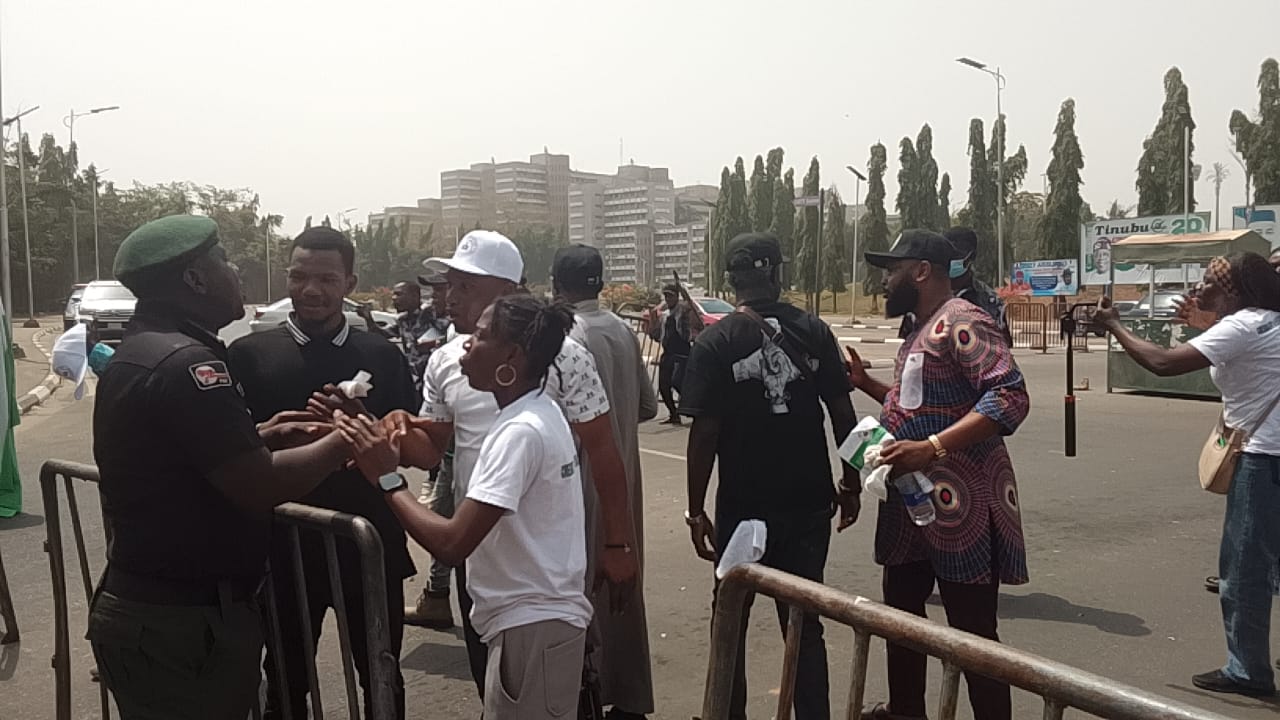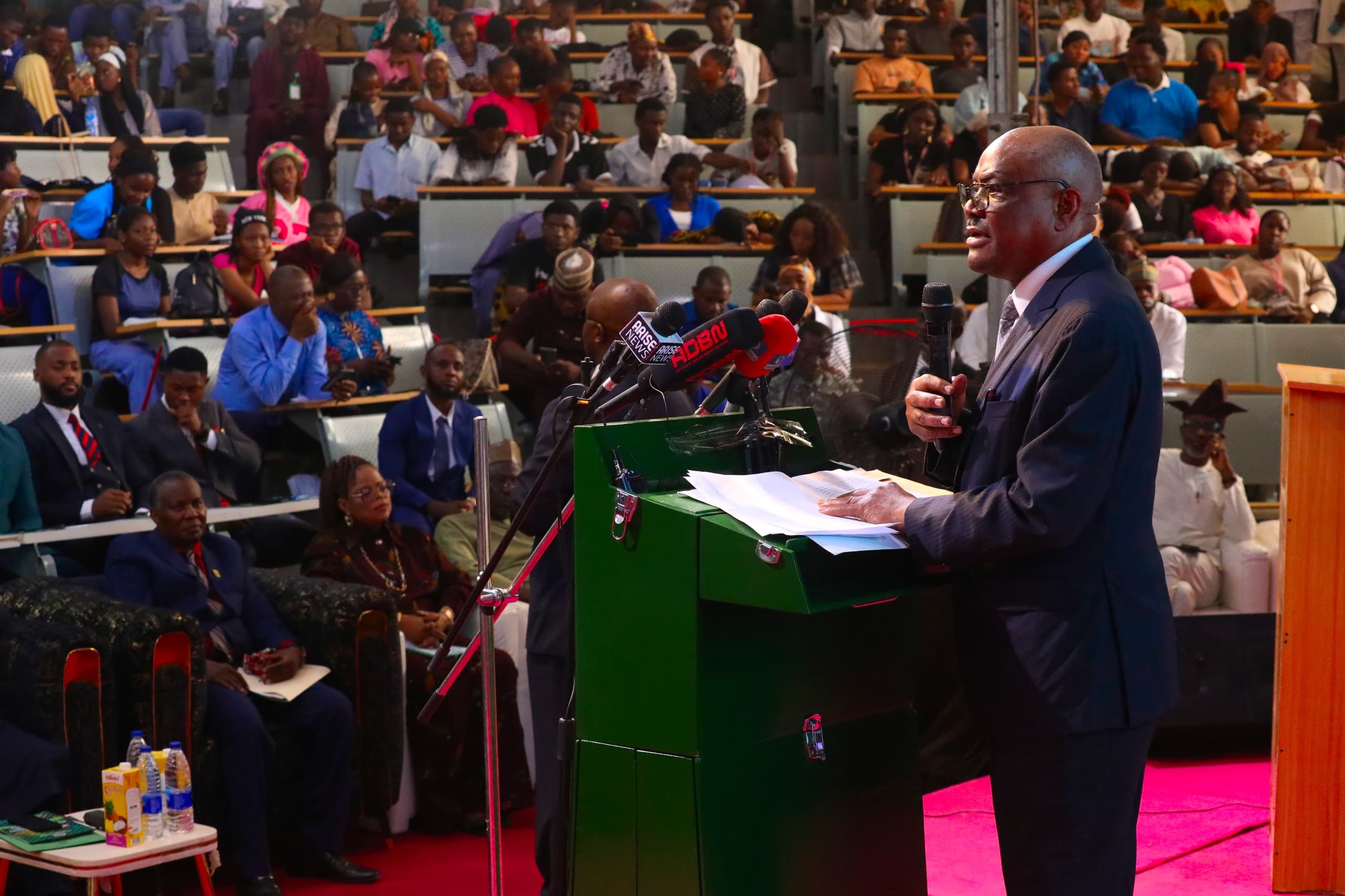The National Chairman of the Social Democratic Party (SDP), Professor Abubakar Gombe, has urged residents of Bwari Area Council to take charge of their democratic future by electing credible leaders in Saturday’s FCT Area Council elections.
Gombe made the call during a courtesy visit by party leaders to the palace of the Awal Musa Ijakoro II, where they sought royal blessings ahead of the polls.
Addressing community stakeholders, the SDP chairman stressed that local government remains the closest tier of government to the people and plays a decisive role in addressing grassroots concerns. He noted that area council leadership directly impacts service delivery, infrastructure development, and social stability.
According to him, those contesting are not distant figures but members of the community who understand local challenges. He urged voters to assess candidates based on competence, accessibility, and integrity, reminding them that the responsibility for shaping Bwari’s future rests with the electorate.
Highlighting the party’s agenda, Gombe said the SDP is committed to people-centered governance anchored on economic empowerment, improved security, and efficient service delivery. He reaffirmed the party’s resolve to implement its manifesto in ways that deliver tangible benefits to local communities.
He also called for peaceful and credible elections, encouraging residents to participate actively and ensure their votes reflect their aspirations for development.
In his remarks, former SDP presidential candidate, Adewale Adebayo, described area council elections as critical to national development, emphasizing that effective grassroots governance can ease pressure on the federal structure by ensuring essential services are managed locally.
Adebayo urged voters to exercise their civic rights responsibly and reject inducements, noting that voter turnout and vigilance remain vital safeguards against electoral malpractice. He also stressed the need for collaboration between elected officials and traditional institutions, saying royal fathers possess invaluable community knowledge that should complement governance efforts.
The party’s chairmanship candidate for Bwari, Abubakar Abdullahi, pledged inclusive governance and grassroots-driven development if elected. Accompanied by his running mate, Mr. Pope Ngoposha, Abdullahi said his ambition is rooted in service and collective progress.
He promised a leadership style that reflects Bwari’s diversity, assuring residents of transparency, participatory decision-making, improved infrastructure, and strengthened social cohesion.
Responding, the Sarkin of Bwari, Awal Musa Ijakoro II, called on political actors and residents to ensure peaceful participation in the elections. He emphasized unity, mutual respect, and the power of the ballot, reminding stakeholders that leadership ultimately reflects the will of the people and the grace of God.
The monarch prayed for a hitch-free exercise and urged candidates to avoid actions capable of disrupting public order.
The FCT Area Council elections are scheduled to hold across the six area councils, with stakeholders underscoring the need for transparency, security, and robust voter turnout.
Grassroots First: Social Democratic Party Rallies Bwari Voters Ahead of FCT Polls
Bwari Bombshell: PDP Candidate Bows Out, Throws Weight Behind APC Man Days to Poll
Political fireworks erupted in Bwari on Wednesday as the Peoples Democratic Party (PDP) chairmanship candidate, Julius Adamu, dramatically stepped down for the All Progressives Congress (APC) flagbearer, Joshua Ishaku Musa — barely 72 hours to the FCT Area Council elections.
Adamu announced his withdrawal at a rally, revealing that his decision followed consultations with the Minister of the Federal Capital Territory, Nyesom Wike.
“I have been in deep consultation with the FCT Minister. Joshua and I are brothers. It will not be nice for two brothers to fight over one office,” he said.
“Therefore, I have relinquished my ambition and I urge all my supporters to queue behind Hon. Joshua.”
The shock move sent waves through the political camp in Bwari, with supporters cheering as the two politicians embraced publicly.
Wike, who was present at the event, did not mince words as he canvassed support for the APC candidate.
“People of Bwari, if you vote for Joshua, I will do more roads in Bwari,” the minister declared.
“On Saturday, come out en masse and make sure Joshua wins.”
The last-minute alliance is expected to significantly alter the battle for Bwari Area Council, setting the stage for a high-stakes showdown at the polls.
Teargas at NASS: Police Break Up #OccupyNASS Protest Over E-Transmission
Armed police officers on Tuesday fired teargas to disperse hundreds of Nigerians gathered at the entrance of the National Assembly of Nigeria in Abuja under the banner of the National Opposition Movement (NOM).
The protesters had converged on the complex to demand mandatory real-time electronic transmission of election results in future polls. The rally, however, was abruptly cut short when security operatives moved in and released teargas canisters into the crowd.
Among prominent figures present at the demonstration were former Minister of Education, Oby Ezekwesili; former presidential candidate of the Social Democratic Party, Adewole Adebayo; and presidential candidate of the African Action Congress, Omoyele Sowore, among others.
The incident occurred shortly after the leaders addressed supporters, urging Nigerians to remain steadfast in their demand for electoral reforms. Eyewitnesses said the Divisional Police Officer overseeing security at the complex ordered anti-riot personnel to disperse the gathering.
Moments later, teargas was fired, triggering panic as protesters fled, coughing and gasping for breath. Some demonstrators were reportedly injured in the confusion.
Despite the initial crackdown, a section of the crowd regrouped near the National Assembly gate in defiance of the police action. Reinforcements, including several police Hilux vans loaded with armed officers, were deployed to the scene, and additional teargas canisters were discharged to disperse the protesters again.
The disruption spilled into parts of the nearby Federal Secretariat, with passersby caught in the chaos.
The protesters later reconvened at a distance from the gate, chanting anti-government slogans and condemning the police action as undemocratic and excessive.
As of press time, the police had yet to issue an official statement on the incident.
No Shake-Up in Imo, CBM Insists; Cubana Chief Priest Still in Charge
The national leadership of the City Boy Movement (CBM) has dismissed reports of a leadership crisis in Imo State, describing claims of a shake-up as false and misleading.
In a statement on Tuesday, the group faulted publications by Silvernews and other online platforms alleging that Prince Francis Uzor had been removed as State Coordinator and replaced with Hon. Eric Uwakwe, Special Adviser on Youth Affairs to Governor Hope Uzodimma, before a supposed reversal.
The movement made it clear that there is no ongoing or concluded plan to review the appointment of any State Coordinator in Imo State.
According to the statement, the only duly recognised and officially appointed leader of the group in the state remains Cubana Chief Priest, whose real name is Paschal Okechukwu.
CBM stressed that no new appointment has been issued or validated beyond that, adding that reports of parallel leadership structures, withdrawal of appointments or internal wrangling do not represent its official position.
“The City Boy Movement remains a structured and disciplined organisation. Any ambiguity arising from recent correspondence is a ploy to discredit the integrity of the group,” the statement read.
The movement reaffirmed that it follows clearly defined procedures in handling appointments and coordination matters, noting that any official decision would be formally communicated through authorised channels.
CBM further declared that members nationwide remain united in mobilising grassroots support for President Bola Ahmed Tinubu and his Renewed Hope Agenda ahead of the 2027 general elections.
It urged members and the public to disregard unverified reports capable of causing confusion, reiterating its commitment to unity, transparency and organisational discipline across the country.
FCT Area Council Poll: Adebayo Storms Gwagwalada, Slams Neglect, Urges Voters to Shun Money Politics
Former presidential candidate of the Social Democratic Party (SDP), Adewole Adebayo, on Thursday took his grassroots campaign to Gwagwalada, charging residents to use Saturday’s Area Council election to reject bad leadership and demand real development.
Addressing a crowd of supporters, Adebayo declared that the time had come for satellite towns to rise against years of neglect, insisting that meaningful national growth must start from the grassroots.
He recalled that the Federal Capital Territory was created in 1976 under former Head of State, Murtala Muhammed, to guarantee equal access to infrastructure and opportunity for all Nigerians.
“But today, you see the difference between Asokoro and Maitama, and communities like Gwagwalada. That is not the dream of the FCT,” he said.
He listed epileptic power supply, lack of clean water, bad roads, poorly equipped schools and insecurity as major headaches for residents, stressing that local government leadership must be people-focused and policy-driven.
Adebayo warned voters against selling their votes or choosing leaders based on ethnicity or religion, urging them instead to back candidates with competence and integrity.
The SDP chairmanship candidate in Gwagwalada, Khalid Bala-Gano, expressed confidence of victory, describing the rally as the climax of weeks of door-to-door engagement and issue-based campaigns.
He promised transparent leadership, improved primary healthcare, better schools, enhanced security and infrastructure development across the wards.
“Saturday is about choosing accountability over excuses,” Bala-Gano said, urging residents to turn out peacefully and vote.
The election will determine chairmen and councillors across the six Area Councils of the FCT, in what observers say is a crucial grassroots test ahead of 2027.
BILALIKOTO TRAGEDY: WiM-Africa Declares ‘Silent 15’ to Honour Women Killed in Deadly Mine Collapses
Women in Mining Africa (WiM-Africa) has marked the maiden edition of Silent 15 of Bilalikoto – Honoring the Fallen, a continental day of remembrance for women who have lost their lives in mining accidents across Africa, particularly in the artisanal and small-scale mining (ASM) sector.
The annual observance commemorates the deaths of more than 48 artisanal miners — mostly women — who perished in a devastating mine collapse in Bilalikoto, Mali, on February 15, 2025, while working to provide for their families. The tragedy, WiM-Africa noted, reflects a disturbing pattern of preventable mining disasters across the continent.
Similar fatal incidents have been recorded in Obuasi, Ghana; Katanga in the Democratic Republic of the Congo; Gwanda and Mashonaland West in Zimbabwe; Zamfara, Niger and Benue states in Nigeria; and Siaya County in Kenya — all highlighting persistent safety failures in informal mining operations.
According to WiM-Africa, Silent 15 of Bilalikoto is more than a memorial. It is a call for urgent and coordinated reforms to tackle systemic lapses in mine safety, regulation, and accountability. The group stressed that many women in ASM continue to work in hazardous, largely unregulated environments without proper training, protective equipment, emergency systems, or social protection.
The organization blamed recurring fatalities on weak enforcement of safety regulations, inadequate formalization of artisanal mining, gender-blind mining policies, and opaque mineral supply chains that shield buyers from on-site realities.
WiM-Africa is urging African Union institutions, governments at all levels, mining operators, mineral buyers, development partners, and civil society groups to prioritize safety in mining governance. Key demands include formalizing ASM operations, enforcing safety standards, ensuring compensation for bereaved families, strengthening mineral traceability, and integrating women into decision-making structures.
“As Africa positions itself as a major supplier of critical minerals driving global development and the energy transition, it must not ignore the human cost at the source,” the organization stated. “Women should not die extracting resources that power the world’s economies.”
The Silent 15 of Bilalikoto now stands as a solemn continental reminder that remembrance must go hand-in-hand with reform — and that Africa’s mining future must be anchored on safety, dignity, and justice.

